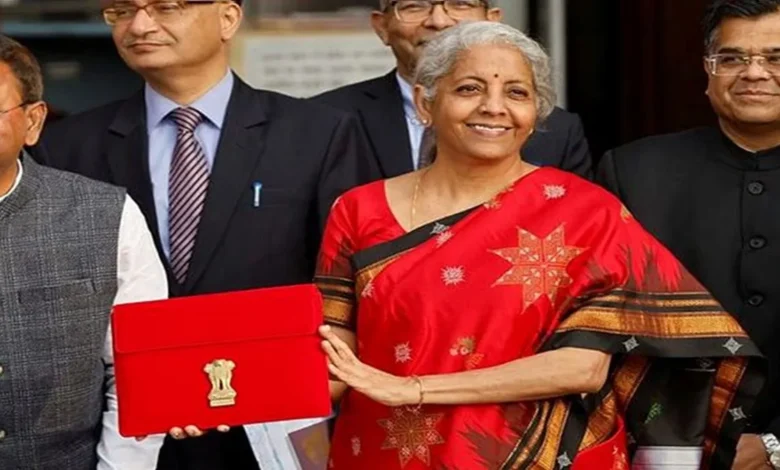Budget 2024: When and Where Can You Watch Live Streaming for Budget Day Budget 2024:

Budget 2024: When and Where Can You Watch Live Streaming for Budget Day Union Budget 2024: Since 2024 is an election year for Lok Sabha seats, this budget will merely serve as a vote-on-account before its fuller form will be presented shortly afterward.
Interim Budget 2024: Union Finance Minister Nirmala Sitharaman will introduce the Interim Budget 2024 into Parliament on February 1. She recently stated that this budget won’t feature any major announcements; therefore she chose not to present the Economic Survey this time as it’s only a temporary budget proposal.
Since 2024 is an election year for Lok Sabha elections, this budget will only serve as an interim vote-on-account and the full 2024-25 budget will likely be unveiled after June. A new government may form around June and will present their final 2024-25 budget by July.
When will Budget 2024 air on TV?
On February 1 at 11 AM, the Union Budget will be presented.
Where can I watch Budget 2024 live streaming?

Nirmala Sitharaman will deliver her budget speech live-streamed on India Today and Aaj Tak TV channels as well as Business Today’s YouTube channel and website, with updates also provided via live blogs from Business Today, India Today, Aaj Tak and Doordarshan News (DD) News as well as YouTube channel of Press Information Bureau (PIB).
How many budgets has Nirmala Sitharaman presented so far?
Nirmala Sitharaman will present her sixth consecutive budget on Thursday, matching Dr Manmohan Singh. Sitharaman became India’s first full-time female finance minister since taking office in July 2019; thus far she has presented five full budgets, and five interim Budgets and will soon surpass Arun Jaitley and Yashwant Sinha as India’s record holder in terms of consecutive Budget presentations.
Arun Jaitley and Yashwant Sinha presented five budgets in succession.
Expectations from Union Budget 2024 in terms of different sectors
Though this budget will only be presented as a vote-on-account measure, many Indians expect Nirmala Sitharaman to present it with measures such as decreased taxes, increase in income-tax rebate thresholds, revision in the capital gain tax system, the inclusion of more benefits under new tax regime and removal of goods and services tax (GST) from insurance policies.
Not only this, but the recruitment industry is looking at budgetary allocation for workforce development and skill enhancement. They expect this budget to include provisions related to gig economy/ contingent workforce regulations.
“A forward-looking budget must also consider regulatory frameworks pertaining to the gig economy and contingent workforce, providing a balanced yet flexible approach that benefits both employers and workers. Encouraging collaboration among recruitment platforms and tech firms will be vital in driving innovation and keeping abreast of industry advances; by cultivating such an environment, not only can we sustain its current growth rates but we can create an atmosphere in which the gig economy is used as a powerful driving force to shape tomorrow’s work”, Sekhar Garisa, Foundit CEO said.
As well as targeting the gig economy, the industry is also seeking incentives for specific industries in order to stimulate investment, job creation, and industrial expansion.
“The budget should provide targeted incentives for specific sectors to drive investment, create jobs, and promote industrial expansion. These can be further reinforced through increases in skill development programs and incentives for job creation in informal sectors; or through promotion of equitable and stable working conditions,” according to Rohet Ramesh of Layam Group’s staffing management and talent acquisition services firm.
Women entrepreneurs are also in search of increased budgetary allocation in order to enhance their access to capital as well as increase equity-based funding.
“India currently only has three diversity-oriented funds–AWE, She Capital, and Arise–each offering relatively small fund sizes and facing challenges related to managing them effectively. To effectively promote women entrepreneurs, the upcoming budget must dedicate significant resources to support access to capital for these women entrepreneurs – specifically through increasing equity-based funding sources. The government should prioritize allocating risk capital over loan-based strategies. Many female entrepreneurs find they cannot qualify for existing schemes, highlighting the need for a more inclusive and accessible financial ecosystem. Therefore, Aditi Balbir of EcoRatings–an AI-powered platform providing ESG ratings of products and services–proposed that the budget allocate more capital towards diversity-focused funds to recognize women entrepreneurs’ role in creating a more equitable business landscape.




